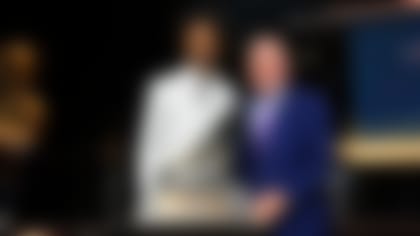ESPN college basketball announcer Jay Bilas has crusaded for reform in the NCAA for many years, particularly when it comes to the fact that student-athletes don't share in the multi-million dollar business that is college sports.
Amid the NCAA investigation of Texas A&M quarterback Johnny Manziel allegedly profiting from his own autograph, however, Bilas took the battle to spectacular new heights on his Twitter account Tuesday. The NCAA has always sold jerseys with numbers corresponding to star players, but with no names on the backs of those jerseys. The implied integrity there is that no profit was being made off a student-athlete's actual name.
Bilas blasted a massive hole in that notion.
Then he tweeted photos of the NCAA's merchandise shop displaying all sorts of jerseys of college stars based on searches of their last name.
"Somebody had done a screen grab, like I did, and I noticed Manziel was in the search box," Bilas told NFL Draft 365. "I thought 'That can't be. You can't possibly search a player name and suddenly his jersey comes up. They wouldn't have done that.' So I went to the site, punched in Manziel, and the same page came up. I did it with Clowney and the South Carolina jersey came up. I did it with the Boyd kid from Clemson, McCarron, a whole bunch of guys. It all went right to their jerseys. It was remarkable."
The NCAA, in what could only be interpreted as an indirect response, removed the search field entirely from its merchandise page. Bilas went onto expose the NCAA further with a series of tweets like this one about the NCAA president Mark Emmert:
Bilas also pointed out that NCAA atttorneys may have planted their feet squarely in the their mouths in court as well.
"This on the heels of, earlier this week, in one of the court cases, the NCAA submitted to the court that there is no linkage between these jerseys and a specific player," Bilas said. "They put that before the court, and that's essentially saying something under oath. Clearly, that wasn't true."
Follow Chase Goodbread on Twitter @ChaseGoodbread.












